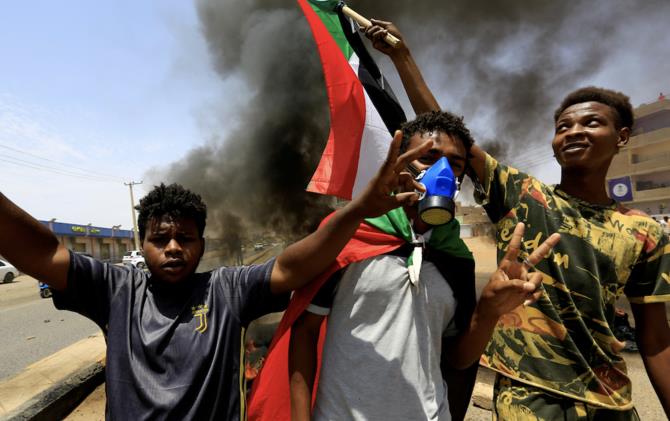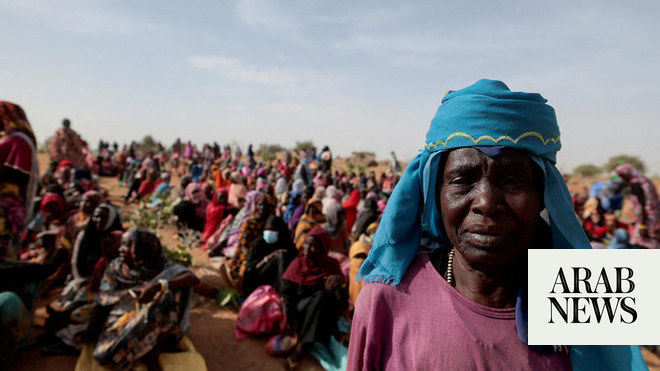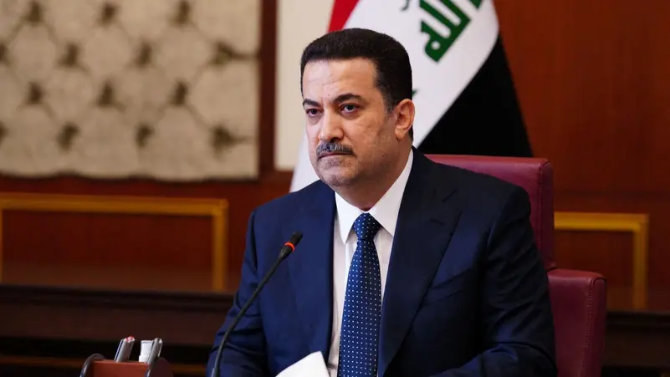
The war in Sudan persists unabated and continues to inflict profound suffering on the populace. The country’s refugee crisis has emerged as a dire humanitarian challenge, casting a shadow of despair over the region and placing significant strain on neighboring countries. As thousands flee the violence and instability in Sudan, the international community must confront the urgency of this situation and devise comprehensive solutions to alleviate the burdens on host nations and, more importantly, provide hope and a future for the refugees.
Among the nations grappling with a substantial influx of Sudanese refugees is Chad, a country that is also struggling with its own challenges. It has seen a substantial increase in its refugee population and prominently stands out as a host country battling the complexities of supporting a large displaced population. The influx of refugees is putting a strain on the nation’s limited resources.
However, it is not alone in shouldering this burden, as other countries in the region, including South Sudan, Egypt, Ethiopia, the Central African Republic and Libya, have also become significant recipients of those fleeing the conflict in Sudan. The plight of Chad and other neighboring countries demonstrates the interconnectedness of this regional crisis, necessitating a comprehensive international response to alleviate the burdens these countries face.
These countries need support to tackle the repercussions they are facing as a result of hosting large numbers of Sudanese refugees. Behind the staggering statistics lies the human toll of the Sudan refugee crisis. Families are torn apart, many children do not have access to education and more and more people face the trauma of displacement. In addition, the absence of adequate healthcare and sanitation facilities exposes refugees to the risk of disease, compounding their already precarious existence.
It is also important to point out that the journeys undertaken by refugees to reach the relative safety of one of Sudan’s neighboring nations are often harrowing and fraught with difficulties. From traversing treacherous terrain to facing the constant threat of violence, those seeking refuge embark on a perilous odyssey, thus highlighting the desperate circumstances that force them to leave their homes in search of security and stability.
The burden should not fall solely on the shoulders of neighboring nations; instead, a global approach is imperative.
Dr. Majid Rafizadeh
The shared experience of these refugees underscores the regional nature of the crisis. A collective and concerted international response is required to alleviate the strain on the host countries and also address the conflict, which has compelled such extensive displacement.
In the event that the Sudan conflict persists, countries like Chad and Egypt could endure heightened political and economic challenges. This is primarily because the ongoing influx of refugees has the potential to exert a substantial impact not only on host nations’ economies, but also on their social, political and environmental dynamics.
The implications of such a sustained crisis extend beyond the immediate economic strain, permeating various facets of the host countries’ functionality. For instance, the ramifications may include increased competition for limited resources, while social tensions may arise from cultural diversity and political pressures may be exacerbated by the demands of managing a large displaced population.
In addition, it is worth noting that the environmental landscape may also experience stress due to intensified resource consumption and altered demographic patterns associated with refugee settlements. As a result, addressing the Sudan conflict becomes not only a humanitarian imperative but also a strategic necessity in order to avert the potential destabilization of neighboring nations.
The scale of the Sudan refugee crisis demands a robust and coordinated international response. The burden should not fall solely on the shoulders of neighboring nations; instead, a global approach is imperative.
The international community must collaborate to provide financial assistance, medical aid and logistical support to alleviate the strain on host countries. Furthermore, diplomatic efforts should be intensified. Sustainable initiatives should be put forward to end the conflict, while political dialogue and international mediation are essential in order to curb and halt the violence that is driving Sudanese people from their homes.
The UN, regional organizations and influential nations must also unite to exert diplomatic pressure on all parties involved and facilitate a resolution.
It is crucial for the UN, working with the African Union, to play a pivotal role in aiding Sudanese refugees by ensuring access to essential services such as nutrition, primary healthcare, mental health support and child health services.
Equally crucial is the assistance extended to the host countries grappling with insufficient resources to effectively manage the surge of refugees. This multifaceted approach, encompassing both direct support for the displaced populations and bolstering the capacities of host nations, is indispensable in addressing the complex challenges arising from the Sudan refugee crisis.
In a nutshell, the Sudan refugee crisis is not an isolated issue; it is a test of our collective humanity and commitment to the principles of compassion and solidarity. As the world witnesses the suffering of millions, the need for immediate action becomes increasingly evident. The international community must rise to the occasion, providing both financial and diplomatic support to ease the burden on host nations. Only through a united effort can we hope to bring an end to the suffering of the Sudanese refugees.
Dr. Majid Rafizadeh is a Harvard-educated Iranian-American political scientist. X: @Dr_Rafizadeh










